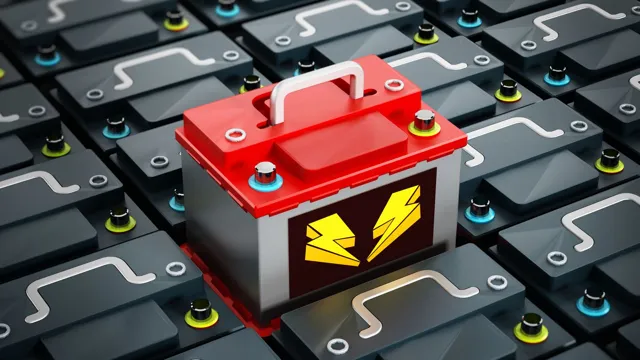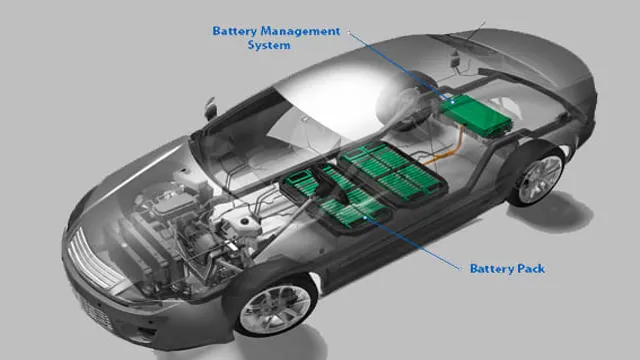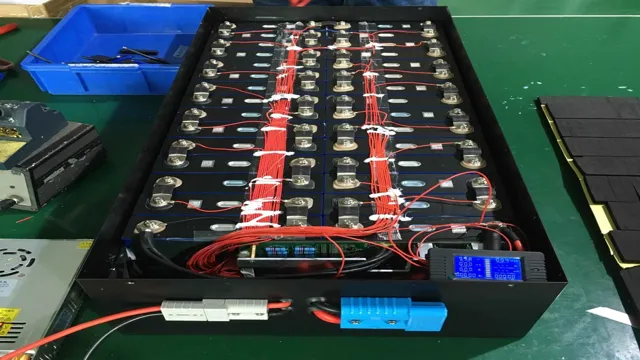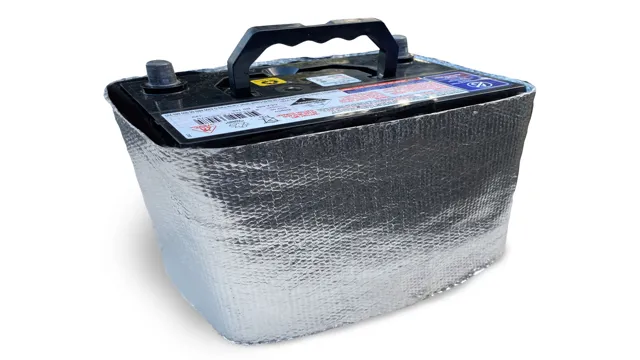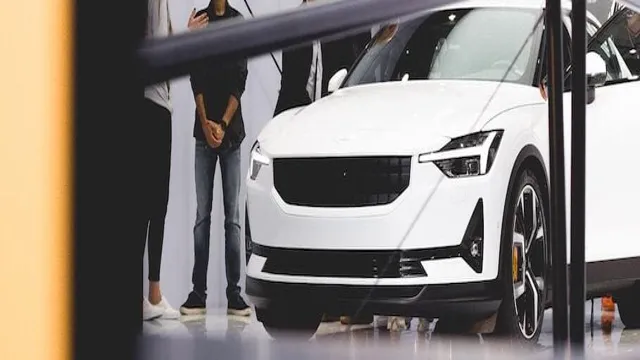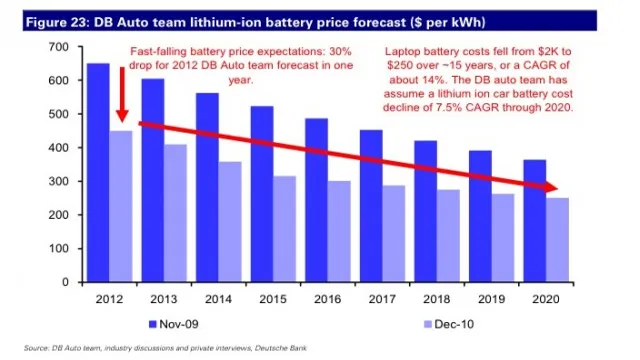Rev Up Your Ride: Exploring the Power of Electric Car Motors and Batteries
Electric cars have gained significant popularity over the past few years. With the rise in awareness of the negative impact of fossil fuels on the environment, more and more people have started investing in electric cars. But do you ever wonder how these cars function and what powers them? The answer lies in the electric car motor and battery.
The electric car motor and battery are the two main components that differentiate electric cars from their petrol and diesel counterparts. While traditional cars use internal combustion engines for power, electric cars rely solely on their electric motors. These motors convert electrical energy from the battery into mechanical energy, which powers the wheels.
The battery, on the other hand, is responsible for providing the electrical energy needed to power the electric motor. Electric car batteries are designed to store a large amount of energy, allowing the car to drive longer distances on a single charge. They are rechargeable and can be charged using a charging station or a home charging system.
One of the major advantages of using electric car motors and batteries is their efficiency. Electric cars are much more efficient than gasoline-powered cars as they convert a higher percentage of the energy stored in the battery into power that moves the car. They are also much quieter, emit less pollution, and require less maintenance.
In conclusion, electric car motors and batteries are the backbone of the electric car industry. They are efficient, environmentally-friendly, and offer a smoother driving experience. As more car manufacturers invest in this technology, we can expect to see a gradual shift towards electric cars, making the world a cleaner and greener place to live.
Benefits of Electric Car Motors and Batteries
Electric car motors and batteries offer a multitude of benefits for both the environment and the consumer. First and foremost, electric cars emit significantly less pollution than their gas-powered counterparts, making them a more environmentally friendly option. Additionally, electric cars require less maintenance as they have fewer moving parts in the motor than traditional gas-powered cars.
This means fewer oil changes and less wear and tear on the vehicle overall. Electric cars are also more fuel-efficient, leading to lower costs to operate in the long run. The batteries used in electric cars are constantly improving, offering longer ranges and faster charging times.
This means less time spent charging and more time enjoying the ride. Despite the higher price point compared to gas-powered cars, the benefits of electric car motors and batteries make them a smart investment for those looking for a more sustainable and efficient mode of transportation.
Environmental Impact
Electric cars are becoming increasingly popular these days, and for good reason. The benefits of electric car motors and batteries go beyond just saving money on gas, as electric cars also have a positive impact on the environment. First and foremost, electric car motors are much more efficient than traditional internal combustion engines, which means they use less energy to travel the same distance.
This translates into less carbon dioxide emissions and a reduced carbon footprint. Additionally, electric car batteries are recyclable, which means that they don’t create as much waste as traditional car batteries. And, as renewable energy sources become more prevalent, such as solar and wind power, the environmental impact of electric cars will continue to improve.
So, not only are electric cars good for your wallet, but they are also a great way to be environmentally conscious without sacrificing convenience or style.
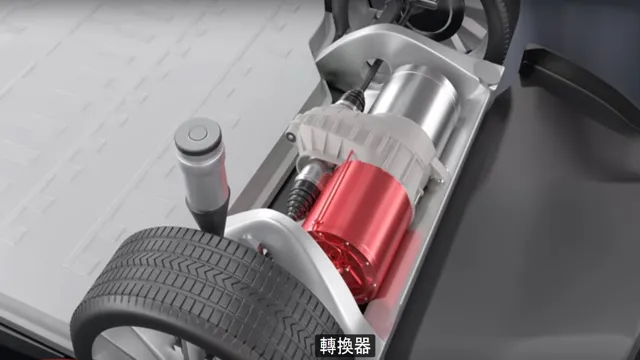
Lower Cost of Ownership
Electric cars are rapidly growing in popularity, and for good reason. One of the most significant benefits of electric car motors and batteries is the lower cost of ownership. While the initial price of an electric car may be higher than a traditional gasoline-powered vehicle, the long-term savings are substantial.
Electric cars require less maintenance because they have fewer moving parts, which means fewer repairs and replacements. Additionally, charging an electric car costs much less than refueling a gas-powered vehicle. Electricity is also more reliable and stable in price than gasoline, which can fluctuate unpredictably based on various factors such as global politics and natural disasters.
Overall, investing in an electric car is a smart financial decision, both in the short and long-term.
Types of Electric Car Motors and Batteries
When it comes to electric cars, the motor and battery are the heart and soul of the vehicle. There are several types of electric car motors and batteries available, each with their own benefits and drawbacks. The most common type of electric car motor is the AC induction motor, which uses alternating current to generate torque.
Another type is the permanent magnet motor, which is smaller and more efficient than the AC induction motor, but can be more expensive. As for batteries, there are several options, including lithium-ion, nickel-metal hydride, and lead-acid. Lithium-ion batteries are the most popular choice due to their high energy density and long lifespan, but can also be more costly.
Nickel-metal hydride batteries are a more affordable option but have a lower energy density. Lastly, lead-acid batteries are the least expensive but also have a shorter lifespan and require more maintenance. Ultimately, the type of motor and battery used in an electric car will depend on factors such as cost, efficiency, and performance needs.
AC Induction Motors and Lithium-Ion Batteries
When it comes to electric cars, two crucial components are the motor and the battery. There are different types of electric car motors, but the most common ones are AC induction motors. These motors work by using a rotating magnetic field to induce an electrical current in the rotor, which then creates rotational motion.
AC induction motors have been around for a while and are a tried and tested technology used in various applications. On the other hand, lithium-ion batteries are the most commonly used type of battery in electric cars. They are rechargeable and provide a high energy density, making them ideal for use in vehicles.
Lithium-ion batteries work by storing energy in the form of charged ions that move between the electrodes. They can provide reliability and consistency in power output, crucial for electric vehicles. Both AC induction motors and lithium-ion batteries play vital roles in the functioning of electric cars, and their advancements play a critical role in making electric cars more accessible and feasible for everyday use.
Permanent Magnet Motors and Nickel-Metal Hydride Batteries
Electric car technology has come a long way over the years, with a variety of motor and battery options available to suit different needs. Two popular types of electric car motors are the permanent magnet motors and the alternating current (AC) induction motors. Permanent magnet motors use a magnetic field to generate torque in the motor and are efficient, reliable, and relatively simple to control.
Meanwhile, AC induction motors use a rotating magnetic field to generate torque and are known for their high power density and ability to operate at high speeds. When it comes to batteries, the nickel-metal hydride (NiMH) battery is an alternative to the more commonly used lithium-ion (Li-ion) battery. NiMH batteries are less compact and have a shorter lifespan than Li-ion batteries, but are more environmentally friendly and have a higher tolerance for extreme temperatures.
Ultimately, the choice between motor and battery types will depend on factors such as cost, performance, and personal preference.
Brushless DC Motors and Solid-State Batteries
Electric car motors and batteries come in various types, but two popular and efficient options are brushless DC motors and solid-state batteries. Brushless DC motors are known for their long-lasting and high-performance capabilities. These motors use a direct current (DC) power supply, which means they can quickly and seamlessly convert electrical energy into mechanical energy.
On the other hand, solid-state batteries have become increasingly popular in the world of electric cars because they are lighter, smaller, more efficient, and faster charging than traditional lithium-ion batteries. Solid-state batteries do not have liquid electrolytes, which significantly reduces the risk of fire and explosion. This technology uses a solid electrolyte instead, enabling faster charging times and energy density.
In conclusion, while traditional DC electric car motors and lithium-ion batteries are still widely used, brushless DC motors and solid-state batteries are gaining popularity due to their numerous advantages.
Factors to Consider When Choosing Electric Car Motors and Batteries
When it comes to choosing an electric car motor and battery, there are several factors to consider. One of the most important factors is range. In order to have a truly efficient and practical electric car, you need a battery with a long enough range to get you where you need to go without constantly needing to recharge.
Another important consideration is power. The motor needs to be powerful enough to meet your driving needs and handle any terrain or weather conditions you may encounter. Additionally, you should think about the weight and size of the motor and battery, as these will affect the overall weight and handling of the car.
Other factors to keep in mind might include cost, charging time, and environmental impact. By taking all of these factors into account, you can select an electric car motor and battery that meet your specific needs and preferences.
Range
When it comes to choosing electric car motors and batteries, one of the most important factors to consider is range. Range refers to the distance an electric car can travel on a single charge. It can vary greatly depending on the electric car model and the capacity of the battery.
To choose the right motor and battery, it is important to consider driving habits and needs. If the electric car will primarily be used for short trips around town, a smaller battery may suffice. However, for those who need to travel longer distances or have a longer commute, a larger battery and motor may be necessary.
It’s important to take into account variables such as terrain, temperature and driving conditions. Overall, the range is a crucial consideration when choosing an electric car as it affects the car’s practicality for day-to-day use.
Charging Time
When it comes to choosing the right electric car motor and battery, charging time is an important factor to consider. Nobody wants to sit around waiting for their car to charge for hours on end, right? So, it’s essential to look for a motor and battery combo that will provide the best balance between range and charging time. Some factors that can impact charging time include the size of the battery, the type of charging station used, and the capacity of the charger.
For example, a smaller battery may charge more quickly than a larger one, but you may sacrifice range as a result. On the other hand, a more powerful charger can speed up charging times but may require a more significant upfront investment. Overall, it’s important to do your research and choose the best electric car motor and battery combination that meets your specific needs and driving habits.
Conclusion
Well, folks, it looks like the future of transportation is electric. With the development of advanced electric car motors and batteries, we have the ability to move away from fossil fuels and towards a more sustainable and eco-friendly mode of transportation. These technologies are efficient, powerful, and environmentally responsible – making them the perfect solution for those who want to drive fast AND save the planet at the same time.
So, if you’re looking for a clean, green, and seriously cool way to get around town, look no further than the electric car motor and battery. Just plug in, charge up, and hit the road (or the racetrack) with confidence and style!”
FAQs
What types of electric motors are used in electric cars?
There are three types of motors used in electric cars: AC induction motors, permanent magnet motors, and switched reluctance motors.
How long does an electric car battery last?
The lifespan of an electric car battery depends on many factors, such as the type of battery, usage, and maintenance. On average, a lithium-ion battery lasts anywhere from 8-10 years or 100,000-200,000 miles.
Can you charge an electric car battery with a regular electrical outlet?
Yes, you can charge an electric car battery with a regular electrical outlet. However, it will take a longer time to charge, and it may not be suitable for charging regularly.
How long does it take to charge an electric car battery from zero to full?
The charging time for an electric car battery depends on the battery size and the charging rate. On average, it takes around 4-8 hours to fully charge an electric car battery from zero to full, using a Level 2 charging station.
